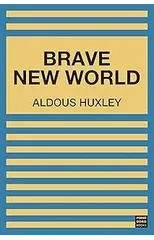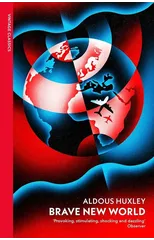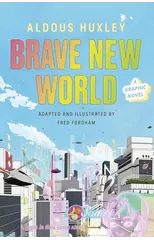Brave New World Aldous Huxley - Large Print Edition
(Author) Aldous HuxleyWhen Brave New World was first published in 1932 it was regarded as another screwball Science Fiction novel. However, as time as gone on, more and more of the events predicted by this novel have become true and it is now required reading at major universities. In the Brave New World, the classes of people are divided into Alphas, Betas, Gammas, Deltas and Epsilons. Each class is trained to believe that they are better off than either the people below them or above them. The people at the bottom of the scale are the laborers who do the actual work. To maintain this intelligence disparity, children of lower classes are made less smart through oxygen treatments and chemicals. Parenting and family is nonexistent and such concepts are considered archaic and disdained. All children are born as test tube babies. One fertilized egg will normally produce 96 identical twin children. However, experiments have been done in which as many as 16,000 identical children have been produced. Sex is no longer needed or wanted to produce children. As a result, a man can usually have sexual intercourse with any woman he wants. Just as almost everybody will shake your hand if you stick your hand out, in the Brave New World, almost every woman will have sexual intercourse with you if you ask her.
Aldous Huxley
Aldous Huxley was a British writer and philosopher known for his dystopian novel "Brave New World," published in 1932. His works often explored themes of technology, society, and the human condition. Huxley's writing style was characterized by his use of satire and wit, as well as his keen observations of society. He was a prominent figure in the literary genre of dystopian fiction, influencing writers such as George Orwell and Margaret Atwood. In addition to "Brave New World," Huxley's other notable works include "Point Counter Point" and "The Doors of Perception." His contributions to literature continue to be celebrated for their thought-provoking commentary on the complexities of human existence.






